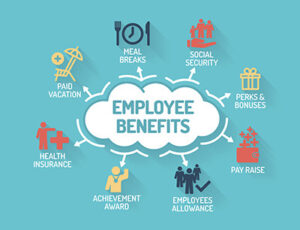Employee retention is a vital aspect in forming a successful team. Employees are more likely to stay with a firm that can contribute to its overall growth and prosperity if managers and supervisors strive to make their teams feel valued and motivated. Flexible work arrangements, benefits, professional development opportunities, growth chances, corporate culture, and other
Employee retention is a vital aspect in forming a successful team. Employees are more likely to stay with a firm that can contribute to its overall growth and prosperity if managers and supervisors strive to make their teams feel valued and motivated.
Flexible work arrangements, benefits, professional development opportunities, growth chances, corporate culture, and other factors all play a role in employee retention.
We’ve compiled a list of topics to consider to assist you round out your strategy for retaining the greatest employee.
Hiring Right Resource

It all starts with selecting the best candidate for the job. Job descriptions should be thorough and updated regularly.
Those in charge of hiring must properly analyse job candidates to ensure that they have the skills and personality to handle the job and fit into the company’s culture.
Firstly, we should hire the candidate according to the job role, expertise, skills, hire the people who are looking for growth and are optimistic.
Give Employees Opportunities

If employees feel they’ve hit a roadblock or don’t see a future with the company, they’ll look for better opportunities elsewhere.
If you provide them opportunities to learn new skills and grow in their professions, they are much more likely to stay loyal.
Opportunities for promotion and mentorship attract the best-qualified individuals. They would rather stay at a company that provides this than leave for a higher-paying job.
Making it easy for them to study and finish work is one way to keep them motivated. You can fund their education and provide them with compensated study time before their exams.
Non – Monetary Perks

Employees are more likely to stay with companies that provide the best benefits. Companies can provide health benefits and retirement savings to their employees.
Employees are looking for strategies to plan for retirement as the economy fluctuates and pension programmes become obsolete. Employers could encourage employees to save by matching their 401(k) contributions. This could be a powerful incentive to stay with a company.
Performance bonuses, paternity/maternity leave, and flexible work hours are other essential benefits.
Open Communication
Employees are less likely to quit if they believe the organisation is on the right track. Open communication is vital for establishing trust and cultivating a sense of responsibility among employees.
Employees should be involved in critical work. Open communication with employees aids in the development of relationships, transparency, and trust between employees and the organisation.
Creating a Friendly Work Environment
Employees will choose to stay in a workplace that makes them feel included and promotes diversity. Employees desire to appreciate their work environment.
More businesses are examining their workplace environments and attempting to improve them to retain top employees.
Many organisations, for example, have onsite fitness centres where employees are obliged to sit for long periods in front of a computer every day.
Provide some wonderful amenities for your staff, such as free coffee and snacks, a pool table, or a zen room.
Birthday celebrations, parties as a reward for successful projects, and Friday happy hours can all contribute to a healthy work environment.
Work-life Balance
Employees value work-life balance more than ever before. You must recognise that your employees have a life outside of the workplace. If you force them to come in early and work after office hours regularly, they will eventually start seeking alternative work.
People can now work without having to go into the office thanks to the option to work remotely. Employees choose remote work because it provides them with the flexibility they desire. Every employee wishes for a flexible schedule.
Regular Feedback
Employee feedback should be problem-solving-oriented, brief, and to-the-point. Use statements like “Your work has to be improved” or “Those reports didn’t impress me” when giving constructive feedback. “You have to do better than that” may perplex your employee, leaving them confused of which aspect of their job has to be improved.
Regular feedback will push employees to improve, and expressing it in a good light rather than publicly criticising will develop trust and strengthen bonds, all of which will help the firm grow and prosper. Employees will feel more appreciated, and they will want to stay with the company for longer.
Work to Build a Brand

Make a concerted effort to establish a brand. Focused methods and an employee-friendly workplace aid in brand development. TATA is the best example.
Employees that are passionate about making a positive effect on the world will consider working for a positive branded company.
Employer branding is how you market your organisation to job searchers and internal employees. Employer branding improves your chances of attracting top personnel. A positive employer brand can also aid in the retention of outstanding people.
At its most basic level, an employer brand is your reputation among employees as well as their view of you as a boss.



















Leave a Comment
Your email address will not be published. Required fields are marked with *